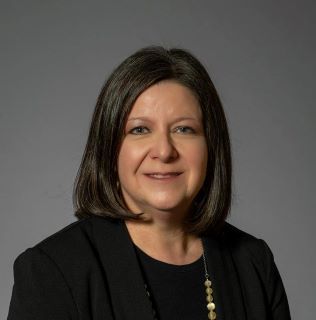Blog Article Tags
We love building relationships. Subscribe to our blog to receive weekly encouragement in your email inbox.
Search Blog Posts
- Details
 Written by Anessa Westbrook, volunteer with Iron Rose Sister Ministries in Arkansas
Written by Anessa Westbrook, volunteer with Iron Rose Sister Ministries in Arkansas
When we read about heroes in the Old Testament, their example seems so unattainable: Abraham, Moses, David, Ruth, Esther, and Deborah. David. His relationship with God was enviable. In 1 Samuel God rejects Israel’s first king, Saul. Because Saul had not followed God’s commands, his kingdom would not endure. In 1 Samuel 13:14 it says that “the Lord has sought out a man after his own heart and appointed him ruler of his people” (NIV). I always assumed that being someone labeled “after God’s own heart” was only attainable for the biblical heroes of old. It wasn’t something that we could, or perhaps even should, consider. While it was obvious that a person after God’s own heart kept His commands, I felt that was not enough to really know what was meant by that statement. The Bible is filled with people who had followed His commands, but only David was given this label. I still remember the day that I bumped into Acts 13:22. This passage seemed to give definition to what I was struggling to understand. David was a man after God’s own heart because “he will do everything I want him to do.” While this was still a high task, and perhaps impossible, was there a chance for a regular person to have God think about them in the same way?
The New Testament shows examples of people living their everyday lives in a faithful way, and God using them in a special way at a specific time. Stephen, for example, was one of the seven men selected to help with the distribution of food to the widows. In Acts 6:5, he is described as “a man full of faith and of the Holy Spirit.” He worked day-by-day to support and encourage the early church, but God was also using him evangelistically (Ac 6:8). Stephen was someone whose character was shaped daily, and who God used to share the Good News and glorify Him in the difficult position of becoming the first martyr. Another example is that of Tabitha who Acts 9:36 says was “always doing good and helping the poor.” When she died, the widows mourned and showed Peter all she had done for them. Peter raised her from the dead and this act became a spiritual testimony to the people of Joppa (Ac 9:41-42).
However, the Bible does not just provide positive examples for us to learn from. David’s story becomes complicated because of some major spiritual missteps. Instead of accompanying his troops off at war, he was at home in his palace and became interested in a young woman who was bathing on the rooftop. After she became pregnant, he tried to hide the sin ultimately resorting to the murder of her husband (2Sa 11). Someone who both cheated on their spouse and then had their lover’s spouse killed would likely make the news today. How could God use such a person? The genealogy of Jesus in Matthew 1 adds an interesting twist to this story because it has three women whose stories would likely raise eyebrows even today: Tamar, Rahab, and Bathsheba. Why would the storyline of the Savior contain such imperfect people? Perhaps we are seeing a side of God that we have seen since the very beginning of the Old Testament: God as Creator.
One of God’s specialties is taking something that is messy and making something beautiful out of it. The inclusion of these people in the line of Jesus raises another important question: what if they had said “no” to God? What if they had felt too imperfect to be included in His plan or had not tried to make the changes needed to become faithful? In Psalm 51 we see David’s heart after he was confronted by Nathan. He did not justify his actions but recognized his sin. He begged God to cleanse him. David made the changes necessary in his life to become Israel’s most respected king and the father of the line that would lead to the Savior. The examples of those who strove to live a daily life that pleased God, as well as those who made the changes necessary to live a faithful life, invite us to reflect on being a woman after God’s own heart.
What is it that is keeping us from saying “yes” to God’s invitation to partner with Him in the kingdom?
- Details
 Written by Ana Cardoso, volunteer with Iron Rose Sister Ministries in Ecuador
Written by Ana Cardoso, volunteer with Iron Rose Sister Ministries in Ecuador
The Word of God says: “For the LORD is good and his love endures forever; his faithfulness continues through all generations” (Ps 100:5 NIV).
Currently, the concept of love is totally distorted by the world, compared to the love that God teaches us. The love we learn from the world is based on the law of giving and receiving in which for you to receive, it is necessary to give. Often, we Christians follow this pattern.
God's love is eternal, faithful, and incomparable. Many times in my life, I have come to doubt God's love, thinking that because I had given in to sin, God would no longer love me and that perhaps He was tired of my excuses, but I have learned over these 19 years that God's faithfulness never ends. He loves me so much and never fails me. Even knowing this, I continue to make mistakes, yet He continues to love me and teach me about His infinite faithfulness. I often compare myself to the people of Israel, who disobeyed God again and again, and I see that God remained faithful to the Israelites, and still does to us to this day.
But it was because the LORD loved you and kept the oath he swore to your ancestors that he brought you out with a mighty hand and redeemed you from the land of slavery, from the power of Pharaoh king of Egypt. Know therefore that the Lord your God is God; he is the faithful God, keeping his covenant of love to a thousand generations of those who love him and keep his commandments. (Dt 7:8-9)
If, like me, you feel that God is no longer willing to forgive you for the sins you have committed, remember what John said: “If we confess our sins, he is faithful and just and will forgive us our sins and purify us from all unrighteousness” (1Jn 1:9). This is one of the promises that God made to us; we just have to confess our sin and believe in the Word.
In 2023, I was in a training program for young missionaries, and at the end of the year, I discovered that my missionary field would be in another country. At the time I didn't have a single dollar saved to buy the ticket. It was at that moment that I saw that God never abandoned me and remained faithful, even if I didn't deserve it. There were days when I let despair overcome me and I didn't remember who was on my side. It was a unique experience where I was able to have the pleasure of seeing the power of God. As I said, I fail with my faithfulness, but God has never failed and will never fail.
Here is a trustworthy saying: If we died with him, we will also live with him; if we endure, we will also reign with him. If we disown him, he will also disown us; if we are faithless, he remains faithful, for he cannot disown himself. (2Tm 2:11-13)
Dear sisters, I encourage you to seek to know more about God's love and faithfulness, and most importantly, put it into practice. After I started looking more into this, my perspective changed when I saw challenges appearing before me. Now I can say that I finally understand that God's faithfulness has always reached me, and it reaches you, too.
No one can be perfectly faithful, but our God can! When we are not faithful, He remains faithful because He maintains consistency. And, if God is faithful, we have confidence that we will receive the reward He promised us.
